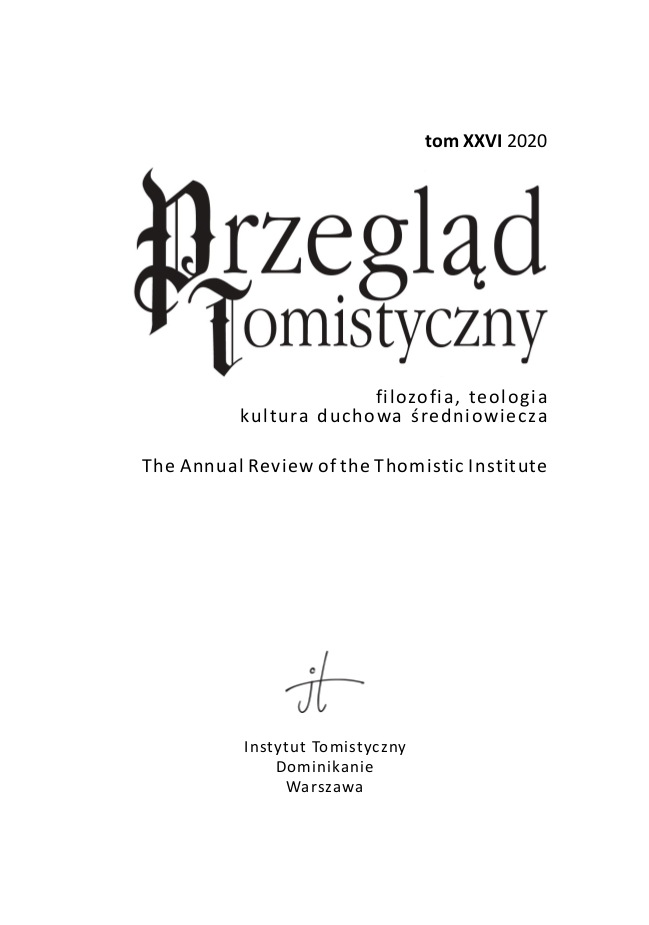TOMASZ STĘPIEŃ, How Can a Spiritual Creature Choose Evil? Anselm of Canterbury and Thomas Aquinas on the Sin of Angels

Volume XXVI: 2020
Philosophy — Theology — Spiritual culture of the Middle Ages
ISSN 0860-0015
e-ISSN 2544-1000
SUMMARY
Although the sin of angels seems to be only a theological issue, it is a very interesting case of the choice which was made by intellectually perfect creatures, and therefore it can be helpful in understanding the very nature of choice. This article analyses the two most significant views on the matter as presented by St. Anselm of Canterbury in his dialogue On the Fall of the Devil, and by St. Thomas Aquinas in the first part of Summa Theologiae. The problem is the role of the intellect and the will in the process of decision making and which of these powers seems to be more important in case of the sin of angels. The main problem of St. Anselm’s analysis lies in the question of how angels could have chosen freely, since only freedom of their choice can dismiss the claim that God is the one to be blamed for their fall. St. Anselm claims that God gave angels two types of will: the will of justice and the will of beatitude, and since angels lacked something to achieve the ultimate beatitude, they preferred happiness over justice. The focus is then on the act of will, which seems to make the choice without the need of any other cause.
Although St. Thomas knew of Anselm’s dialogue, it seems that he did not refer to it while discussing the sin of angels. Although he ultimately agrees that the cause of the fall of angels was a defective act of will, he sees the problem not in the will alone, but rather in the intellectual aspect of the decision. Aquinas makes a distinction between the two kinds of beatitude and shows that although angels after the creation had natural beatitude, they lacked ultimate beatitude, that is seeing God as He is. Angels wanted to obtain this ultimate beatitude by their own power regardless of the rectitude which their action ought to have — and this was insubordination to the rule of the Divine will. According to St. Thomas, the defect of the act laid in not considering the thing which ought to be considered, and therefore it was a lack of consideration. This lack of consideration was possible because angelic cognition was not perfect, and therefore they considered their choice only in one aspect while abandoning other possible views on the matter. However, this defect of consideration was also the effect of the action or restraining of the action of will which did not allow or did not order them to make it. Finally, Aquinas’s answer seems to show a balance between the cognitive and voluntary aspects of the angelic sin.
